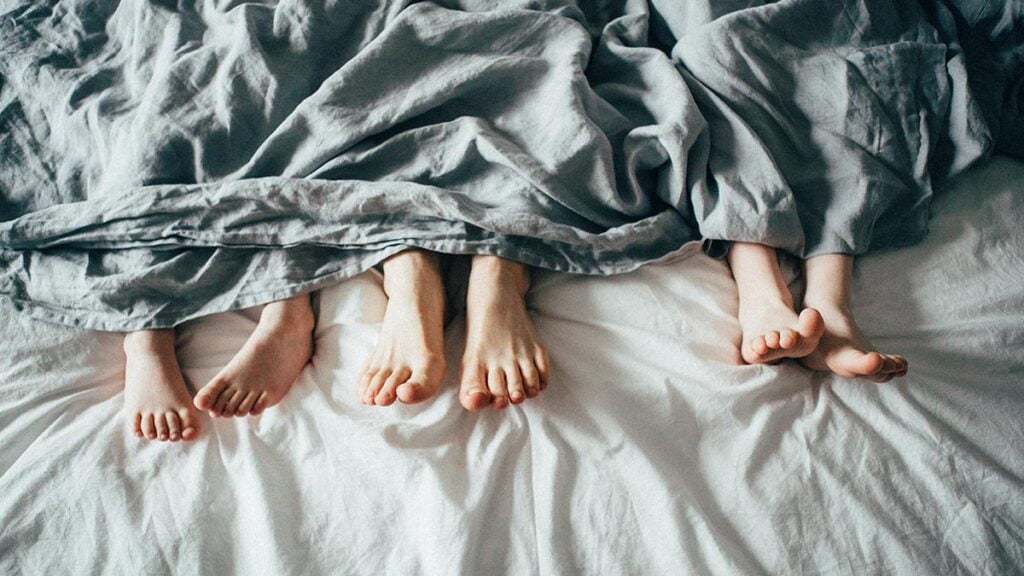
In this post, we answer the sleep-related questions that may, quite literally, be keeping you up at night. From what your sleep position reveals about your personality to the effects of sleep deprivation on your mind and body, this knowledge-packed post addresses sleep-related issues large and questions small. Read on; here’s hoping you will not only learn something interesting but also be better prepared for a good night’s sleep.
According to experts, the average person requires around 10 to 20 minutes to fall asleep. If you fall asleep as soon as your head hits the pillow, it could be a sign that you’re sleep deprived. If it takes you a while to fall asleep, it may be an indicator of insomnia. If you do struggle to fall asleep, doctors recommend something relaxing like reading a book or doing a crossword until you feel tired. Do not simply lie awake stressing about falling asleep, as you will then be even less likely to fall asleep.
Don’t be embarrassed—drooling (or sialorrhea) while sleeping is quite common. It’s not your fault and it’s not caused by dreams of chocolate cake. Saliva can build up in your mouth and, because you’re not sleeping upright (or at least, we hope you aren’t!), your natural swallowing response is not triggered. The result is a harmless wet patch from the saliva trickling out of the corner of your mouth.
These are called myoclonic jerks and they’re a bit of a mystery. Experts aren’t quite sure what causes them, but some have suggested that it’s a simple burst of brain energy that causes the body to shudder briefly just as you’re nodding off. Increased anxiety, a late-night cup of coffee or exercise too close to bedtime may also play a part in your pre-slumber shudder.
This one, too, is open to interpretation. Sigmund Freud theorised that forgetting your dreams is your mind’s way of protecting you from the repressed thoughts that fill your dreams. A more likely explanation is that your mind gets busy and distracted with thoughts as soon as you wake. After all, most of us have real-world concerns beyond the giant marshmallow that may have been chasing us in our dreams.
Simply put: it’s bad. Sleep deprivation disrupts the functioning of almost every system of the body and robs your body of critical sleep-time repairs. According to experts, insufficient sleep can also contribute to depression, weight gain, premature skin aging, heart disease, diabetes and even marital dissatisfaction. The amount of sleep each person ideally requires varies, but try to get between 7 and 9 hours of sleep.
Apparently, it very well could. According to sleep scientists, almost 40% of us sleep curled up on our sides. Research suggests that side-sleepers may seem tough on the outside but are sensitive and perhaps even a bit shy. For those who sleep spread-eagled on their backs: you’re a good listener and make friends easily, but prefer not to be in the spotlight. Of course, you can take these assessments with a pinch of salt from the Sandman.
According to the US National Sleep Foundation, the ideal temperature for sleep is quite cool, somewhere between 18 and 20 degrees Celsius. Of course, such a low temperature is pretty hard to come by in South Africa in the summer months, so, a good fan is recommended.
While you may not be a lycanthrope cursed to howl at the moon, a few days before and after the full moon you may experience a slightly disrupted and shorter (by about 20 minutes) sleep time. It could also take you a bit longer to fall asleep. According to a study by the University of Basel in Switzerland, older adults are less affected by this phenomenon, with younger ones (ages 20 to 31) feeling it more.
Let’s be honest, your mattress doesn’t play a supporting role in your sleep—it’s the star of a great night’s sleep, if you’ll pardon the pun. A poor quality mattress, particularly one that is lumpy or too soft, may not only cause aches and pains in the morning, but may also affect your sprightliness in the long run. A good mattress needs to strike the right balance between softness and firmness, comfortability and support.
Your mattress should be tailored to your needs and preferences. Innerspring mattresses tend to be bouncier, but those with individually-wrapped coils will reduce the bounce and partner disturbance during the night. If you prefer a firmer option, consider memory foam or perhaps a latex mattress. You could also consider a hybrid mattress, which offers the best of all three aforementioned components, combined in one supportive mattress.
For more fun sleep facts and advice, visit our Sleep Blog.